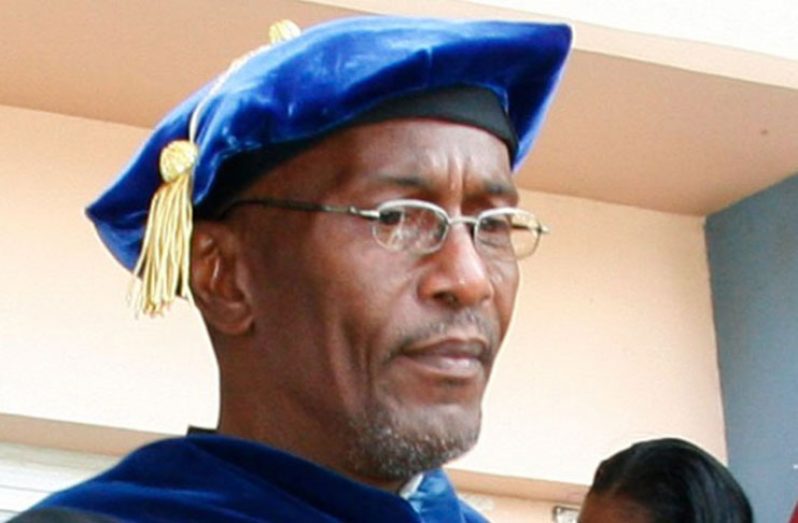WITH the economic and developmental prospects of Guyana’s emerging oil and gas sector becoming more pronounced, the University of Guyana (UG) said there is an urgent need for the building of human capacity to deal with the industry.
To this end, the University has commenced a process of negotiations with several regional and international institutions to have the petrochemical programmes quickly come on stream.
Following the announcement of the first oil find by US Exxon Mobil back in 2015, stakeholders had begun questioning the country’s ability to adequately undertake what could eventually evolve into a giant commercial industry. At the centre of their concerns was the availability of human resource and training, and whether the country’s premier tertiary institution was in a position to galvanise the promised profits of the sector.
Speaking to the Guyana Chronicle on Monday, UG’s Registrar, Dr. Nigel Gravesande said that he only recently returned from a visit to the University of Alberta, in Canada, where he held discussions on Guyana’s oil and gas sector. The University of Alberta is said to be one of the premier oil and gas institutions in North America, and is among a number of institutions with which UG has been in consultation.
Dr. Gravesande pointed out that the collaboration is a process and has only recently begun. “In this context, the University continues to work on the development of relevant programmes in the petrochemical levels. This is a process…So we are going to start a process of collaboration and the programme is only approved when it goes through a series of processes,” Gravesande told this publication.
That process has already started and will continue for the next couple of months. According to him, the subject will have to be presented to the academic planning and policy, before going to UG Academic Board for consideration. The Board, he pointed out, will set out the courses for the programme.
Meanwhile, at the local level, Dr. Gravesande said the University has begun engaging a number of faculties that will be involved in the process, including Technology and Earth and the Environment.
“There is a sense of urgency to start the human resource development training in this very important sector. UG is collaborating with a number of institutions both regional and international in fashioning the most appropriate set of programmes at various levels to meet this sector”, Gravesande said, and added that the institution is committed to playing an active role in the process.
Last Friday, UG’s Deputy Vice-Chancellor, Planning and International Engagement, Dr. Barbara Reynolds told a stakeholder’s engagement session in Canada, that the University is working on the establishment on a School of Energy and Mines aimed at bringing benefits to the oil-and-gas and gold-mining sectors.
Dr. Reynolds said the University needs to figure out how to export Guyana’s mineral wealth in a more comprehensive manner, even as it figures out how to deal with the likely increase and demand for ancillary services in the oil-and-gas sector, while recognising that it has a trajectory and staying ahead of that curve in terms of the kinds of specialised engineering that we want to develop.”
Dr. Reynolds, who was accompanied by the registrar, said that the University is also working on retooling its geological engineering programme to offer an undergraduate degree in mining engineering, and is looking for expertise in and out of Guyana in this area.
UG’s Chancellor Dr. Nigel Harris had last year warned that the institution needed to be prepared for the oil sector. He had said that the US oil company had already approached the University, and was enquiring about its current arrangement for an industry that is likely to place the country’s economy on another level. He had promised to arrange for assistance from the University of the West Indies (UWI). According to Harris, UWI has been training petroleum engineers and other persons in the industry for the past four decades. “It may be that the UG may not be able to provide all the staff they need. So, we are planning to link the University of Guyana with other international institutions. I will be pushing for links with UWI…. It does not make sense that we have the next-door neighbours and not take advantage of the programmes”, Professor Harris had said.





.jpg)








